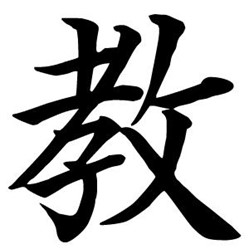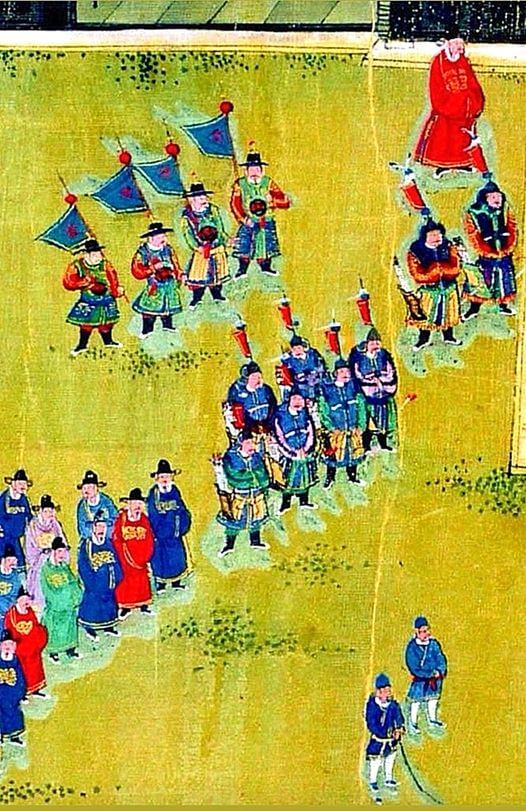One Hundred Unorthodox Strategies – 10. Instructions (Jiao, 教)
Whenever the army is to be mobilized, the soldiers must first be instructed in combat. In ordinary times the warriors of the Three Armies should be well practiced in the methods for segmenting and reuniting, assembling and dispersing, and thoroughly prepared in silently sitting, rising, advancing and withdrawing to commands. Ensure that they will look to the flags and pennants when they meet the enemy in order to respond to battlefield changes and will obey the gongs and drums for advancing and withdrawing, for then they will always be victorious in combat. A principle from the Analects states: “To engage in warfare with an uninstructed populace may be considered abandoning them.”
(Translation by Ralph D. Sawyer)
Notes:
· The title “Instructions” (jiao, 教), means teaching, usually suggesting inculcation of particular behavior.
· The quote from the Analects with Confucius is from chapter 13:30 (論語: 子路).
Original Text:
凡欲興師,必先教戰。三軍之士,素習離、合、聚、散之法,備諳坐、作、進、退之令,使之遇敵,視旌麾以應變,聽金鼓而進退。如此,則戰無不勝。法曰:「以不教民戰,是謂棄之。」
Historical Example:
Instead of the usual historical anecdote, the text quotes the Wu Tzu first: “Now men constantly perish from their inabilities and are defeated by the unfamiliar. Thus among the methods for employing the military, training them and causing them to be alert are primary. One man who has been trained in warfare can instruct ten men. Ten men who have studied warfare can train one hundred men. And one hundred men who have studied warfare can train one thousand men. One thousand men who have studied warfare can train ten thousand. Ten thousand who have studied warfare can train the Three Armies.” (Wuzi 3:5) It then quotes Sun Tzu VII/31: “To be near the goal while the enemy is still far from it, to wait at ease while the enemy is toiling and struggling, to be well-fed while the enemy is famished.”

